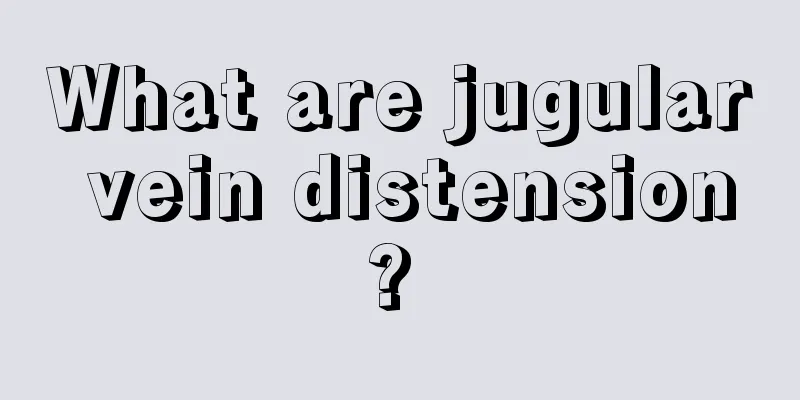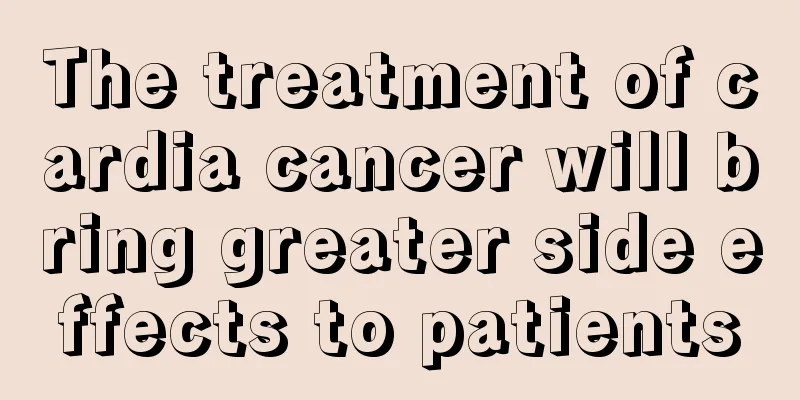What are jugular vein distension?

|
Distended jugular veins are quite common in our daily life. For ordinary people, when we sit normally, the external veins in the neck are generally not visible. They will only be slightly visible when we lie flat. However, for patients with this disease, the jugular veins are prone to filling, causing symptoms of full and swollen veins. This indicates that the venous pressure is relatively high, which is an abnormal phenomenon. At the same time, it also reflects the pressure of the right atrium, and changes in its capacity, which is quite harmful to patients. It can easily cause right heart failure and some organic lesions, such as pulmonary embolism, chronic cor pulmonale, etc. Therefore, such growth should be treated in time. Cause classification 1. Various organic diseases that cause right heart failure: chronic cor pulmonale, pulmonary embolism, congenital heart disease including primary pulmonary hypertension, pulmonary valve stenosis, E-bstein malformation, Eisenmenger syndrome, rheumatic heart disease including tricuspid stenosis and/or tricuspid regurgitation, restrictive cardiomyopathy; 2. It is mainly a manifestation of increased systemic venous pressure. In a semi-recumbent or sitting position, a full external jugular vein can be seen above the clavicle, with a positive truncal reflux sign. When the enlarged liver is compressed, the fullness of the jugular vein can be seen increasing, which is an early manifestation of right heart failure. In severe cases, fullness and distension can also be seen in the patient's arms or other superficial veins. ; 3. Pericardial diseases: pericardial effusion, constrictive pericarditis. mechanism When the above reasons cause the right atrial volume to increase or the pressure to rise, venous congestion and increased venous pressure, and obstruction of superior vena cava return, jugular vein distension may occur. 1. Right heart failure: cor pulmonale, congenital heart disease and rheumatic heart disease can all lead to excessive right ventricular preload and cause right heart failure, resulting in congestion in the systemic circulation; 2. Limited filling of cardiac chambers: Under normal circumstances, the pressure in the pericardial cavity is lower than atmospheric pressure, and also lower than atrial pressure and ventricular diastolic pressure. When pericardial exudate accumulates rapidly and/or the amount of exudate exceeds a certain level, the intrapericardial pressure rises sharply, or the pericardium thickens and stiffens. Fibrosis causes the pericardium to narrow, compressing the entire heart and the outlets of large blood vessels, hindering ventricular relaxation and filling, affecting blood return to the right heart, and increasing venous pressure; 3. Obstruction of the superior vena cava blocks the reflux of the superior vena cava and causes distension of the jugular vein. |
<<: What are the precautions for injecting polio vaccine
>>: What are the causes and precautions for white spots on teeth
Recommend
Urgent but infrequent urination
Many people in life experience frequent and urgen...
What causes lip peeling
Peeling lips is a common condition in our lives. ...
How long can a person with a mediastinal tumor live
Many people want to know what a mediastinal tumor...
The most advanced method for diagnosing tongue cancer
What is the most advanced method for diagnosing t...
What to do if the nipple is broken and bleeding
If your nipple is broken and bleeding, you must g...
What are the symptoms of thyroid tumor
The occurrence of thyroid tumors is often not dis...
How to determine pulpitis?
We must pay attention to the problem of pulpitis ...
What diseases can onions soaked in red wine cure?
I believe that when talking about red wine, every...
Toasted steamed bread slices for superficial gastritis
Many people do not pay much attention to superfic...
Myotonic dystrophy mainly has these manifestations
When it comes to myotonic dystrophy, many people ...
Chinese medicine conditioning can cure cervical cancer
Clinically, TCM treatment of cervical cancer has ...
Can Fengyoujing cure mosquito bites?
Summer is a season when mosquitoes are rampant, a...
What is the reason for yellow toenails
Yellowing toenails is just a symptom and cannot b...
Why are there so many pimples in the middle of my chest?
Acne is the thing that affects people's emoti...
The most suitable exercise for bladder cancer
What is the most suitable exercise for bladder ca...









